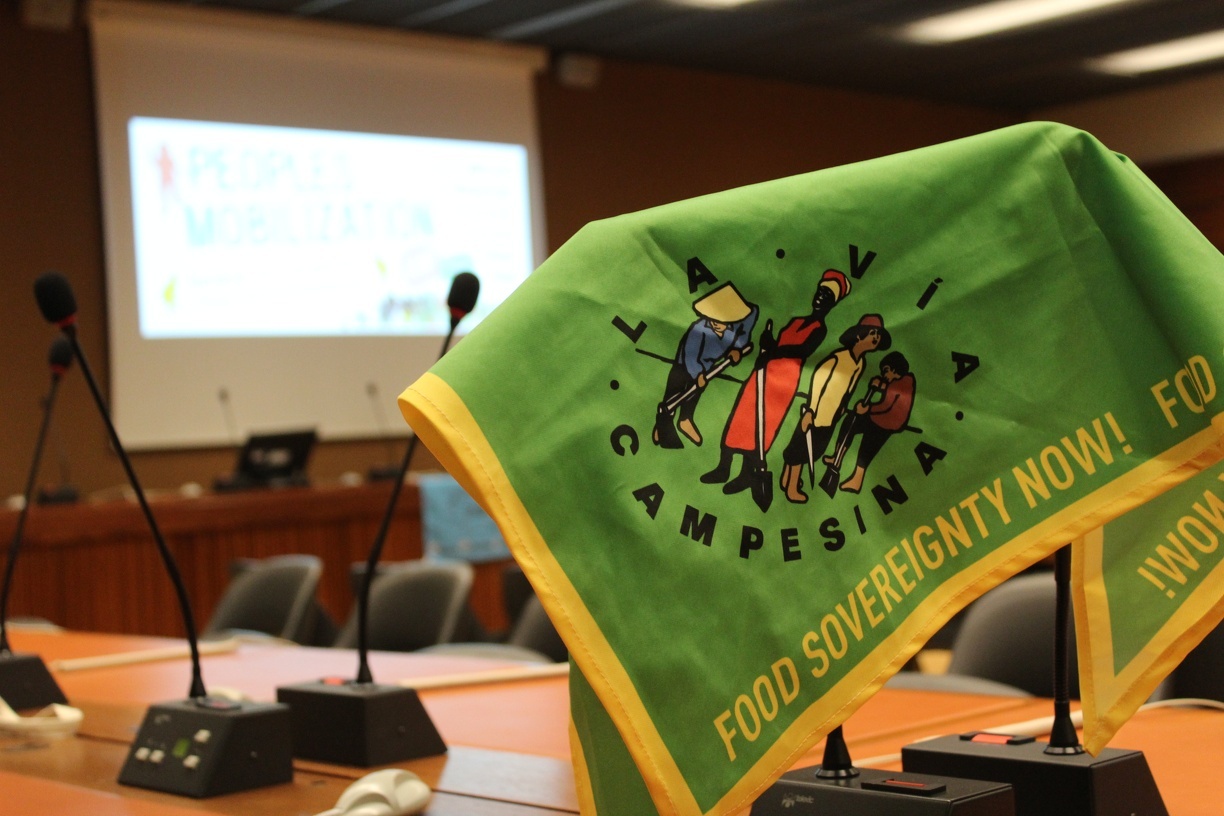The sixth round of negotiations of the United Nations (UN) Open Ended Inter-governmental Working Group (OEIGWG) mandated to elaborate a legally binding instrument on “transnational corporations and other business enterprises with respect to human rights”, took place in Geneva from 26 -30 October 2020.
The continued presence each year since 2015 – the start of this process – of hundreds of representatives from affected communities, civil society organisations, trade unions and social movements makes it one of the most strongly supported in the history of the OEIGWG. This year, however, due to COVID19 restrictions, physical presence in Geneva was limited.
The Global Campaign to Reclaim Peoples Sovereignty, Dismantle Corporate Power and Stop Impunity (Global Campaign), of which La Via Campesina is also a part of, contributed as ever with substantial and concrete proposals to the negotiated text, both from Geneva and via the UN online tools.
Earlier in September, the Global Campaign forewarned that the global corona virus pandemic, meant suitable conditions for a negotiation session and for ensuring its inclusiveness and participatory character were not possible. Although remote participation was enabled through various online platforms by the UN, repeated technical problems hampered remote intervention in the negotiations. The Global campaign’s statement on the last day of the negotiations confirmed that its “original assessment was correct, as the difficulties that everyone encountered in this sixth session resulted in a less than ideal process. We recall that this process should be an inter-governmental negotiation, with ample space for civil society participation according to ECOSOC rules.”
A number of states once again showed their commitment to the process and supported an ambitious Binding Treaty that respects resolution 26/9 and the focus on regulating transnational corporations, such as South Africa, Cuba, Egypt, Azerbaijan and Namibia.
This contrasts with countries whose economies rely heavily on transnational corporations with overseas operations who have always opposed this UN process, such as the United States, Japan, Canada and Australia, as well as the US Chamber of Commerce and the International Organisation of Employers – both of which hold consultative status at the UN.
As in previous negotiation rounds, the European Union – whose member states voted in block against resolution 26/9 – failed to contribute to the text negotiations. In fact the EU’s presence was limited to asking questions of clarification. This was despite 847,000 European citizens calling for the EU’s participation in the negotiations. Mayors of European cities including Barcelona, Marseille and Strasbourg last week called on local authorities around the world to support the UN Binding Treaty on Transnational Corporations and Human Rights.
Read the complete press release here

